

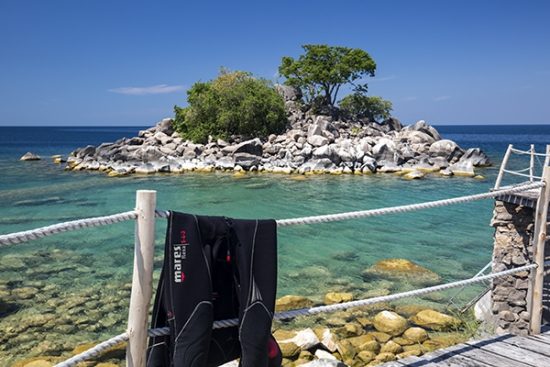
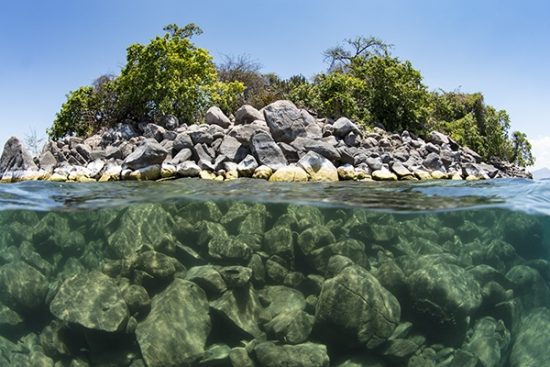
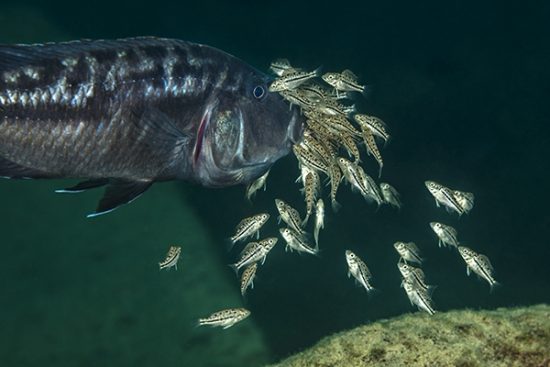
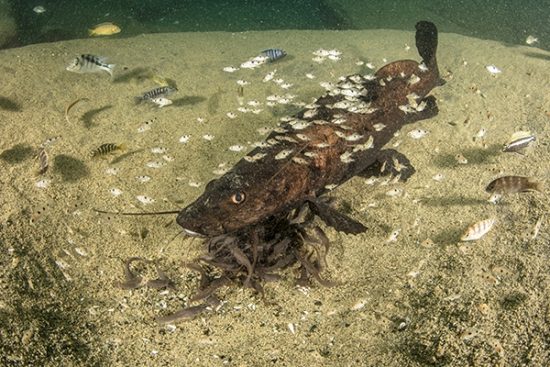
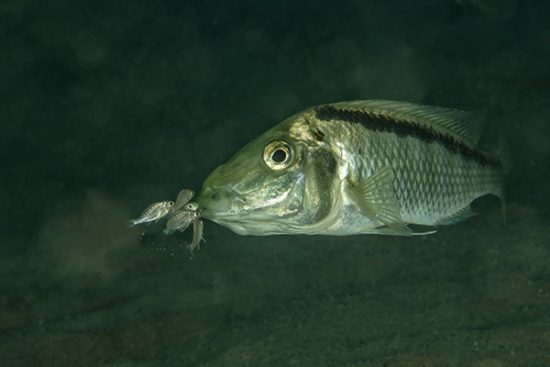
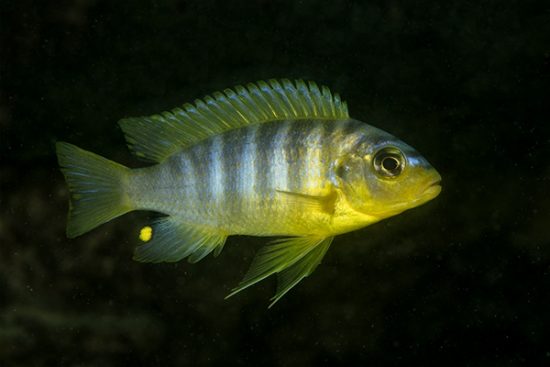
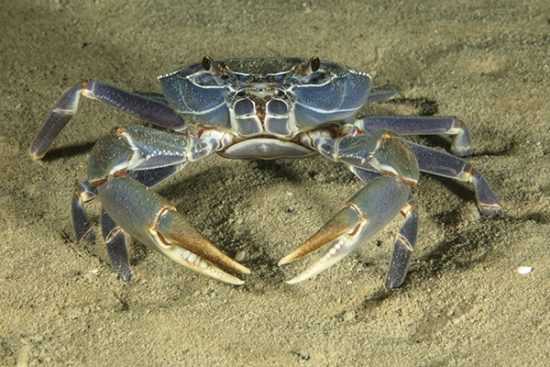
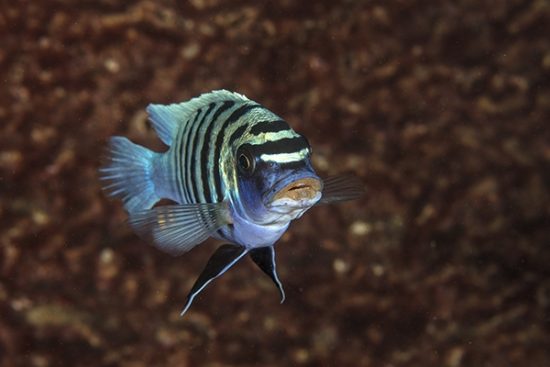
So here we are. Six divers and I, patrolling large rocks at a depth of 18m, struggling to photograph a large amount of offspring wandering around their mother, rushing full speed inside her mouth at the first sign of danger while she swims and hides under the rocks. Luckily we are in the era of digital photography, because I do not know how many pictures I threw away before finding one good enough to be stored in my archive. Taking a decent picture of this behaviour was not at all an easy task, even in decent underwater conditions.
The fish we're talking about are Cichlids, and the behaviour I would like to shoot is unique: an example of the lengths that nature will go to to protect their young. The babies grow within their mother’s mouth. She splits them out in to a safe nursery area and swims around, guarding them. If the mother senses danger, she will try to fend off the intruder, but for total safety she scoops the babies back to her mouth. When she senses the danger has passed, she releases them.
To document this behaviour, I went to Lake Malawi, which is, without doubt, one of the last underwater environments in the world which is still largely ignored by the diving community. This is rather unbelievable if we consider that it is the third largest freshwater lake in Africa and ninth largest in the world. It boasts the highest diversity of freshwater fish in the world, and dives are very easy.
With poor information in my mind, I started to plan my trip. As with many people, Africa for me meant the desert, the savannah and a safari with the Big Five. I struggled to find meaningful information about diving in the lake, despite Lake Malawi’s subtropical waters which are truly unique, and a basin as large as an inland sea.
Lake Malawi is a huge, isolated freshwater tropical environment in the heart of Africa, and it is part of the Western Rift Valley system (where titanic geological forces continue tearing the continent apart) therefore it has incredible underwater topography: sheer cliffs, mountain-like large rock formations and plenty of underwater caverns.
While the northern part of the lake has deeper waters, the islets dotted around the southern shore attract the Cichlids which feed on the mossy rocks surrounding them.
Our first dive was to a dive site known as 'Aquarium', just a short boat trip across the lightly rippling lake waters. No tides, no currents, no salt, no huge surf to launch through: this dive couldn't have been easier.
We did our backwards rolls into the water and descended in to the greenish fresh water. An abundance of colourful tropical fish (the famous Cichlids) small, bright, varied and beautiful swam around us. Bright, luminous, blue stripes offset by matt black, yellow and black horizontal stripes, plain blue rimmed with darker blue, mottled orange and black, clear blue with yellow spots; the vivid colours and abundance was breathtaking!
While lacking the mega-fauna and colourful reefs of a tropical ocean, the lake is home to many hundreds of Cichlid fish (an estimated 30% of all known species), nearly all of which are endemic to Lake Malawi. They are known locally as 'Mbuna'. Other fish species, such as Chambo, form the primary protein source of the people that live on the lake's shores and beyond.
The Mbuna fish have developed impressive adaptive radiation and speciation, and are an outstanding example of ecological processes due to the isolation of Lake Malawi from other bodies of water. They are a significant example of biological evolution, comparable to that of the finches of the Galapagos Islands. From a few initial colonizers, upwards of a thousand endemic species have evolved, with many more awaiting discovery. Highly territorial, many reside in one compact area their entire lives, creating inbred communities that diverge into new species.
Much of the lake's astounding underwater diversity is protected within the Lake Malawi National Park at Cape Maclear in the southern part of the lake, one of the first parks in the world set aside for the protection of freshwater fish and a World Heritage Site.
 Franco and Sabrina
Franco and Sabrina 9th March 2021
9th March 2021